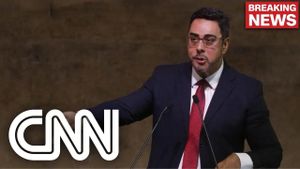The Waqf (Amendment) Bill 2024 remains at the center of heated debate within the Indian Parliament, as key political figures clash over its implementation and potential impact. The bill, which aims to amend the management of Waqf properties, drew substantial opposition during recent Joint Parliamentary Committee (JPC) meetings, especially from All India Majlis-e-Ittehadul Muslimeen (AIMIM) chief, Aasduddin Owaisi.
Owaisi vehemently opposed the bill, asserting its present form violates several constitutional articles. "I am cautioning and warning this government - if you bring and make a Waqf law in the present form, which will be a violation of Article 25, 26 and 14, it will lead to social instability in this country... Waqf is a form of worship for me," he exclaimed during his address in the Lok Sabha. His remarks resonate with concerns among the Muslim community, who he claims have collectively rejected the bill.
According to Owaisi, the bill could push India back to the socio-political environment of the 1980s and early 1990s, threatening Waqf properties. He highlighted the urgency of his warning, stating, "No Waqf property will be left, nothing will be left," if the amendments pass. Owaisi emphasized his commitment to protect religious sites, saying, "I will not lose an inch of my Masjid...I will not lose an inch of my Dargah. I will not allow this." He conveyed his solidarity and pride as an Indian citizen, vocalizing the grievances of his community.
Meanwhile, procedural issues arose with the JPC's handling of the bill. Lok Sabha MP Kalyan Banerjee, who is also part of the JPC, expressed his dismay over the alleged censoring of dissent notes from the draft report. Banerjee's concern came to light when he noted, "To our dismay and utter surprise, we found...dissent notes have been deleted by the Chairman without informing us and without our consent," reporting his grievances directly to Lok Sabha Speaker Om Birla.
Banerjee elaborated on the legality of suspending members from the JPC without due process, emphasizing the Speaker’s authority over such matters. "It is stated...Operation of the Order of Suspension issued to me is wholly illegal and arbitrary and is... contrary to the Rules," he declared. Banerjee refrained from taking criminal action, expressing faith in the Speaker to address these significant concerns about the integrity of parliamentary proceedings.
Defending the bill, Jagdambika Pal, Chairman of the JPC overseeing the amendments, argued during various discussions the bill seeks to empower underprivileged Muslim groups, including widows and Pasmandas. "The new Bill will give power to weaker sections..." Pal stated, pivoting the narrative from the concerns raised by Owaisi and Banerjee to the advantages purportedly embedded within the new legislation.
Pal also addressed allegations of undemocratic practices during committee proceedings, insisting, "The Opposition parties were very much part of the 37 meetings and three study tours of the panel." He emphasized the bill’s emphasis on transparency and efficient management of Waqf properties, asserting, "The purpose of the Waqf and the Waqif will be fulfilled after the enactment of the Bill." He defended the JPC's voting processes as democratic, underlining the government’s mandate to bring the amendments forth.
This clash of perspectives highlights the complex web of political issues surrounding the Waqf (Amendment) Bill. It raises pressing questions about representation, legislative procedures, and the preservation of cultural and religious heritage. Owaisi's warnings of social instability echo as state politics intersect with community interests and the rule of law.
With both sides entrenched, the discussion surrounding the Waqf (Amendment) Bill is more than just about legislative amendments; it is also about identity, rights, and the future course of communal harmony within India. How the government and opposition navigate these contentious debates will undoubtedly shape the narrative of community rights and religious freedoms within the democratic framework of the nation. The next phase of parliamentary discussions will signal the government's stance on maintaining the delicate balance between governance and representation of diverse sociocultural identities.



